Pairted Samples t-test
Validation
0.1.0
Here we compare the results of PAMLj with other software that performs power analysis. In particular, we will compare our results with R pwr package and G*Power.
Example 1 : Power
Setup
- Aim = Power
- Expected \(\delta\) = .5
- N = 30
- Alpha = .05
- Tails: Two
PAMLj
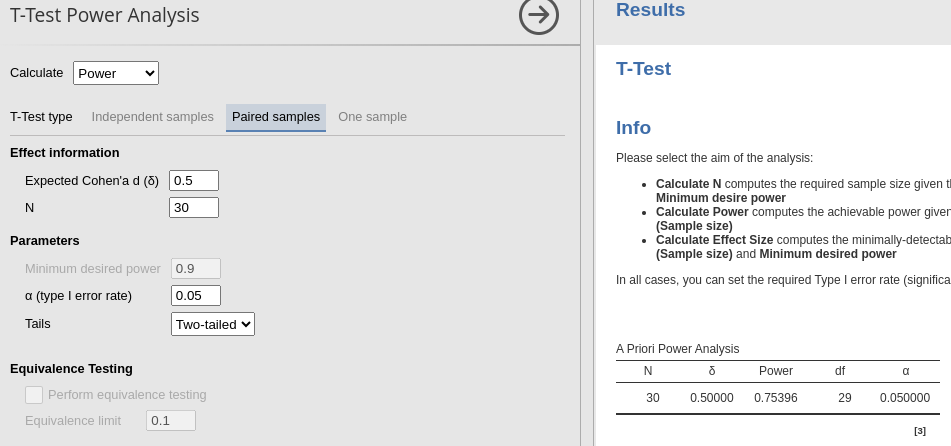
The expected power is .7540.
R
##
## Paired t test power calculation
##
## n = 30
## d = 0.5
## sig.level = 0.05
## power = 0.7539647
## alternative = two.sided
##
## NOTE: n is number of *pairs*rounding at for decimal places, we obtain the same results.
G*Power
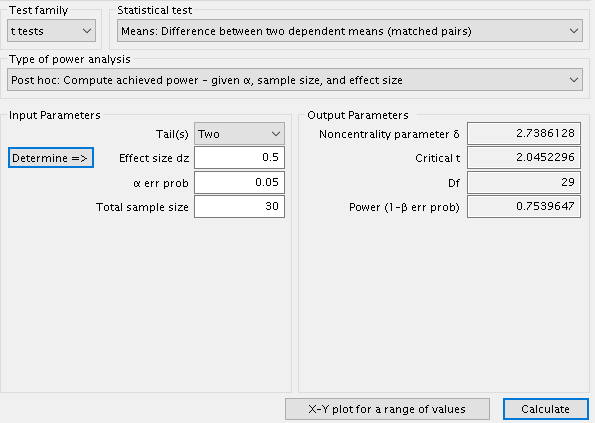
rounding at for decimal places, we obtain the same results.
Example 2: Sample size
Setup
- Aim = N
- Expected \(\delta\) = .4
- Power = .90
- Alpha = .05
- Tails = Two
PAMLj
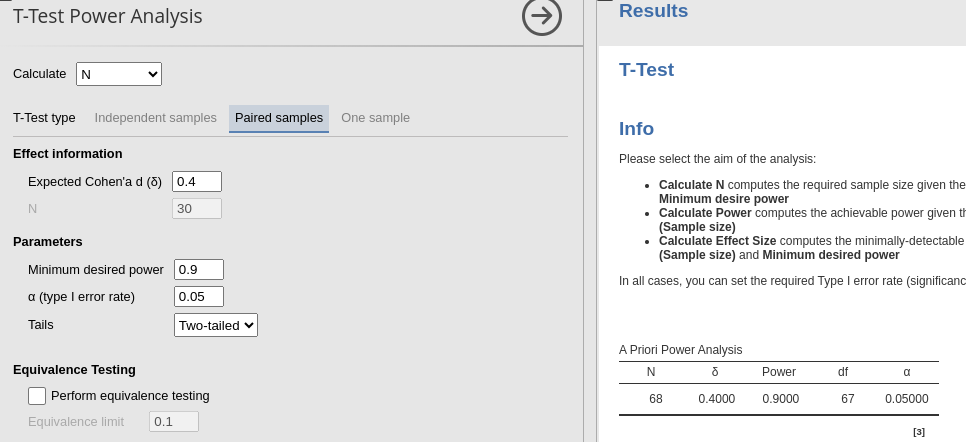
The expected N is 68.
R
##
## Paired t test power calculation
##
## n = 67.62138
## d = 0.4
## sig.level = 0.05
## power = 0.9
## alternative = two.sided
##
## NOTE: n is number of *pairs*after rounding, we get N=68.
G*Power
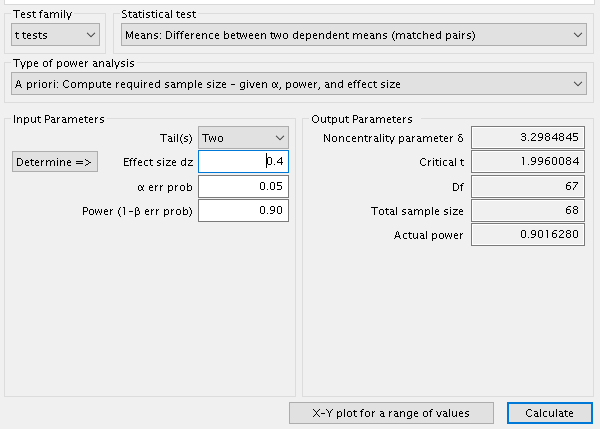
Results are the same.
Example 3: Effect size
Setup
- Aim = minimal effect size
- power = .95
- N = 52
- Alpha = .01
PAMLj
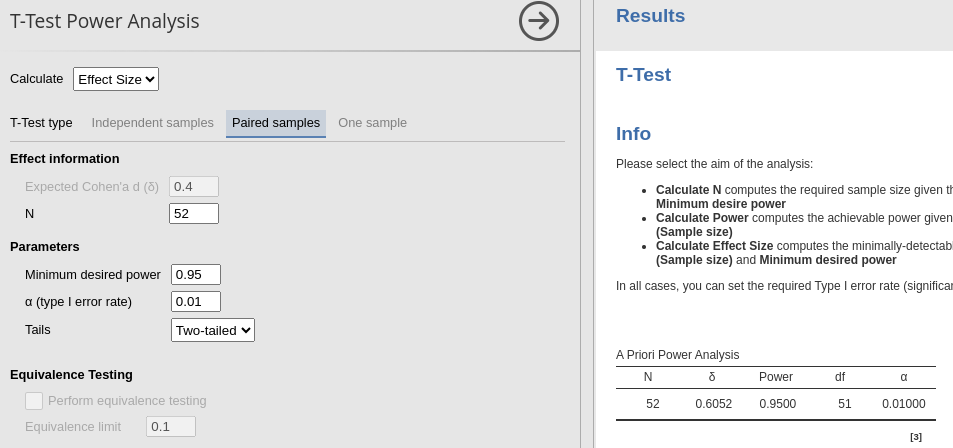
R
##
## Paired t test power calculation
##
## n = 52
## d = 0.6052395
## sig.level = 0.01
## power = 0.95
## alternative = two.sided
##
## NOTE: n is number of *pairs*G*Power
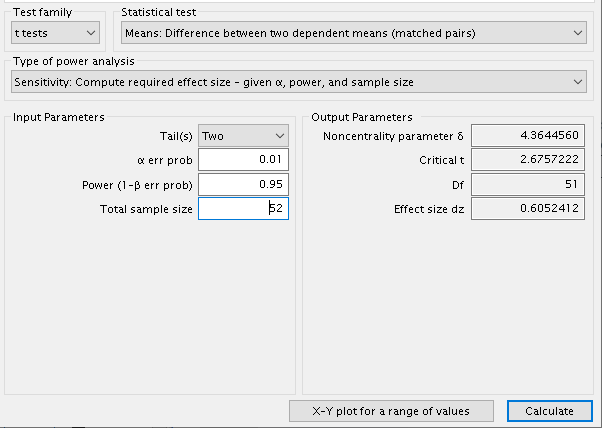
Again, rounding a the third decimal place, results are the same.
Example 4: One-tail
Setup
- Aim = N
- Expected \(\delta\) = .4
- Power = .90
- Alpha = .05
- Tails = One
PAMLj
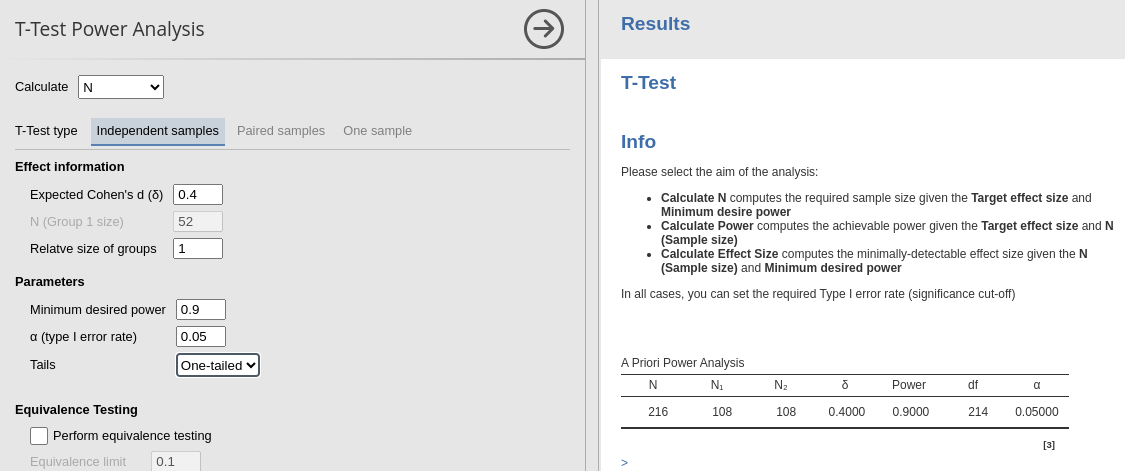
R
##
## Paired t test power calculation
##
## n = 54.90553
## d = 0.4
## sig.level = 0.05
## power = 0.9
## alternative = greater
##
## NOTE: n is number of *pairs*after rounding, we get N=55
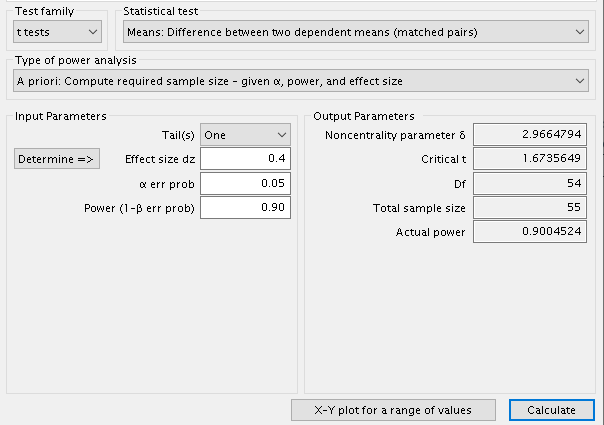
Comments?
Got comments, issues or spotted a bug? Please open an issue on PAMLj at github or send me an email